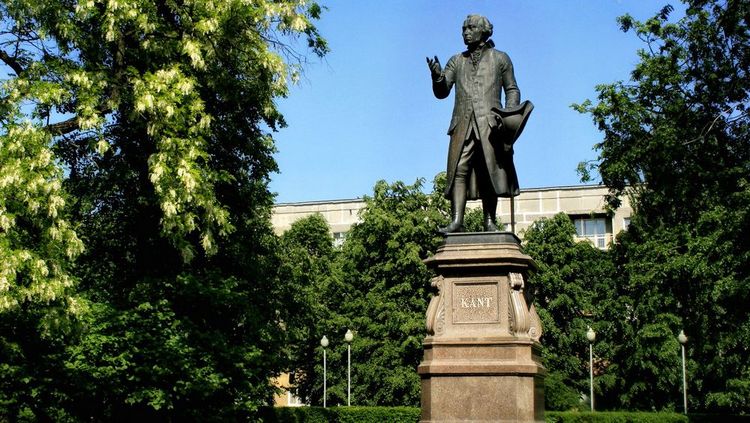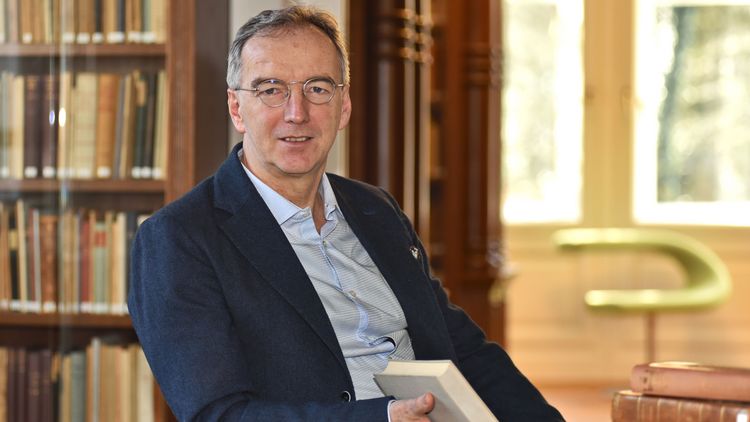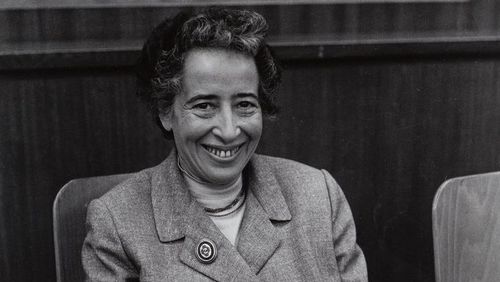22 April 2024 marks the 300th anniversary of Immanuel Kant's birth. Anyone thinking about war and peace, responsibility or objectivity will find plenty of inspiration in Kant's writings, says philosopher Matthias Bormuth.
This year we are celebrating “Kant Year” to mark the 300th anniversary of the birth of Immanuel Kant. What was his life like?
As an Enlightenment thinker, Immanuel Kant can’t be reduced to a common denominator. He was called the “wise man of the world” even though he never left Königsberg. He came from a humble background, had an excellent education and began his career as a natural scientist who knew how to write elegantly. When the aspiring scholar read Rousseau’s Enlightenment works, which were often critical of the authorities and the state, he changed his lifestyle and thinking. Kant renounced scholarly arrogance and sought to “honour mankind” and help “restore the rights of mankind”.
Perhaps the example of his own life, in which he only attained full intellectual freedom at the age of forty, made Kant realise that society could only progress “gradually”. The Enlightenment philosopher was both a realist and an idealist. He recognised the harsh realities of absolutist Prussia but had faith in the Enlightenment process, especially after the French Revolution demonstrated the revolutionary consequences of the will of the people, as described by Rousseau. Kant was adamant that such an event could never be forgotten.
Kant himself triggered a revolution in the “realm of thought”. But it was only later in life that he obtained a full professorship, after which he remained silent for a decade, before publishing his magnum opus, the Critique of Pure Reason, in his late fifties. This was followed by further critiques and writings on the Enlightenment, moral philosophy, religion, politics and anthropology.
Which of Kant's ideas are still especially relevant today?
His thinking is reflected above all in the idea of “human dignity” and the maxim of the “categorical imperative”, according to which only those actions dictated by a rule of conduct which can claim to be valid for all people at all times are morally justifiable. His unique “Critique of Reason”, in which he holds that objectivity can only be limited, is likewise still relevant today. According to Kant, our perceptions are conditioned by time and space. Insights come from people but are bound to facts that cannot be disregarded. To arrive at a reasonably objective conclusion, we must strive for intersubjective coherence. At the time, Kant’s awareness of the subjectivity of cognition had a subversive impact, but in the age of “fake news” his theory is still relevant for our everyday life. These ideas still form the core of his moral philosophical legacy today.
“Enlightenment is man’s emergence from his self-imposed immaturity” is probably Kant’s most famous quote. What self-imposed immaturity do you see in our society today?
For Kant, “maturity” is linked to the claim to “think for oneself”. As Jürgen Habermas shows in his book A New Structural Transformation of the Public Sphere and Deliberative Politics, which was published in 2022, the digital age, with its unlimited and uncontrolled communication, offers inadequate conditions for such independent thinking. Marcus Willaschek, a preeminent Kant expert, clearly illustrates in his recently published book Kant. Die Revolution des Denkens just how endangered deliberative thinking has become. He warns that the “complete lack of state control of the media and the internet” could lead to the formation of opinion being dominated by “commercial interests, ideologies and conspiracy theories”.
Kant's works influenced many other philosophers, including Hannah Arendt and Karl Jaspers. What role does Kant play in their writings?
Both saw Kant as a “world citizen of freedom” who was a shining example in the totalitarian 20th century in which freedom of movement in thought and action was fatally restricted. After the Second World War, Jaspers, the Oldenburg-born existential philosopher, had his Jewish exemplary student Arendt explain how to counter “dark times” in political thought by promoting open discussion in a democratic community. For her, enlightenment meant awakening people’s powers of reflection and judgment.
In several of his works, Kant made disparaging remarks about people of different “races”, as well as about Judaism and people of the Jewish faith. Which of Kant’s views should be handled with caution?
Kant had a precise and fierce interest in all people. This can be observed in his famous controversy with the naturalist Georg Forster, who sailed around the world with James Cook. In The Case of Immanuel Kant, Manfred Geier shows that there were clearly racist tendencies in Kant’s “Eurocentric view of foreign life forms”, as evidenced in his lectures. In view of the state of research at the time, however, this attitude which is so objectionable today was free of crude prejudices. As narrow-minded as this Western arrogance may seem in our globalised world, it does not make Kant a “racist” in the modern sense. A person’s morals can only be judged within the context of their time. And no one is free of “blind spots” which must be seen within the broader context of their overall thinking. This also applies to Kant’s comments on Judaism. Even Hannah Arendt made harsh remarks about Eastern European Judaism, which was embarrassing to quite a few of its assimilated representatives. We would all be surprised at what prejudices might be pointed out to us after a certain amount of time has passed.
Another of Kant's central works is Perpetual Peace, in which he explains the foundations for stable peaceful relations between states. In view of today’s conflicts such as the wars in Ukraine and the Middle East, what does Kant say is necessary for peace to prevail in the long term?
For Kant, above all the willingness to abide by contractual agreements and to refrain from doing things in armed conflicts that would make a future peace agreement impossible – such as committing brutal war crimes – is the precondition for peace. His concept of a democratic and diplomatic agreement is based on this idea. Accordingly, rulers who explicitly dishonour agreements are not contractual partners who can be dealt with using peaceful means. Kant was therefore a realist who considered the use of force to be an legitimate means, as long as peace remained the politicians’ true goal.
Interview: Henning Kulbarsch





